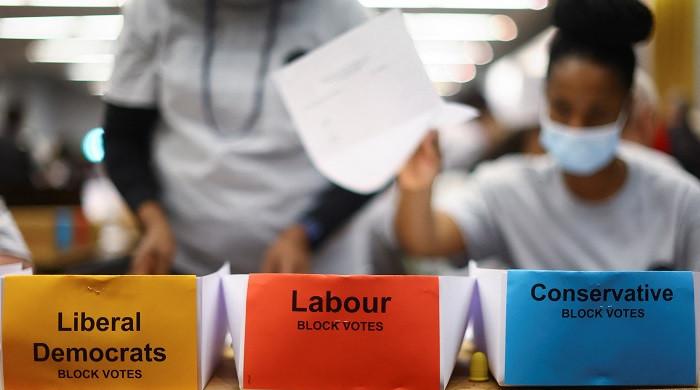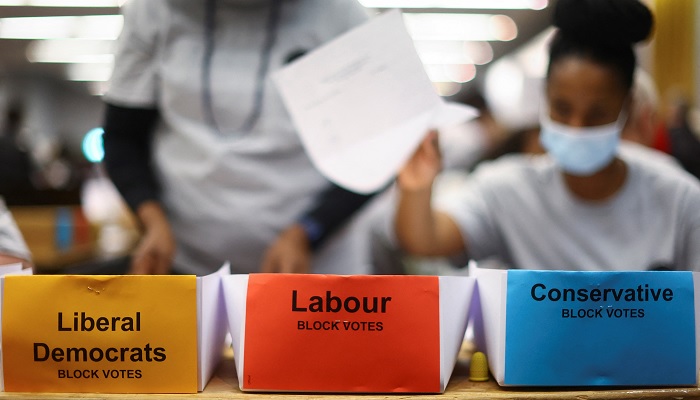 Science & Environment
Science & Environment
Why exit poll is a critical indicator in UK’s…

The exit poll holds significant importance in the United Kingdom’s electoral process. It marks a key moment when an extensive analysis conducted by a think tank reveals the winning trend.
Normally, the exit poll is released around 10 pm on election night, when voting closes, lifting the media silence mandated by British broadcasting rules. This release provides abundant insights for the media to analyse.
Unlike other polls, the exit poll is funded by a consortium of BBC, Sky News, and ITV. The data is collected by Ipsos and studied by experts in a central London location.
Ipsos has conducted exit polls at every UK General Election since 1997. An exit poll is distinct from the prediction polls published during the election campaign.
It intercepts voters as they leave polling stations and asks them to complete a mock ballot paper. Ipsos positions its teams at more than 130 polling stations across Great Britain to deliver a detailed and high-quality picture of voting trends, informing an accurate seat projection.
Typically, prediction polls project vote share and seats by surveying people on their voting intentions. However, these are approximations based on respondents’ accuracy in predicting their behavior and various statistical choices.
The exit poll, on the other hand, is based on the actual behavior of voters coming out of 100-150 selected polling stations. Ipsos fieldworkers tally voters and ask them to fill out replicas of secret ballots, which are later examined for vote changes throughout the day. This method provides a more accurate prediction as it reflects actual behavior rather than intentions.
Historically, the exit poll has been very accurate. In 2019, it was off by only three seats for the Conservatives. It slightly overestimated the Scottish National Party and Liberal Democrats, but the overall result closely matched the final outcome. In 2017, it missed by four seats for the main parties. In 2015, it correctly predicted the Conservatives’ unexpected victory, prompting an inquiry into the polling industry.
There have been notable errors, such as in 1992 when exit polls incorrectly predicted a hung parliament. However, it generally gives a good idea of the election outcome.
While the exit poll provides an early indication of the result, there’s always some uncertainty, especially in years with significant changes, like the 2024 election with its new electoral boundaries. The complexity of tracking vote changes across newly drawn constituencies adds to this uncertainty.
For those eager to know the results, it’s possible to watch the exit poll at 10pm, sleep, and wake up at 3am to see the progress. However, with the excitement of a historic election, staying up all night might be preferable to avoid missing out.










